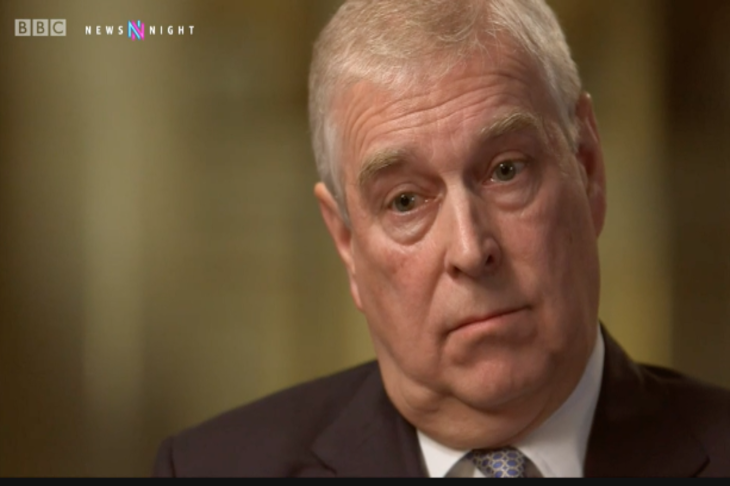Prince Andrew is a creep. But he’s not the only one. There is also something creepy about the public shaming of Andrew. There’s something disturbing in the obsessive, salacious chatter about his allegedly depraved private life and the presumption that he is guilty of terrible crimes.
The Andrew storm increasingly looks like a clash of two types of creepiness.
On Andrew himself: maybe I’m jaundiced because I have been a republican my whole adult life, but I think the Newsnight interview is the best case I’ve seen for abolishing the monarchy. Andrew comes across as a grotesque figure. Aloof, entitled, utterly disconnected from normalcy.
Yes, there were the idiotic statements (I don’t sweat; it’s very unusual for me to go to Woking), but even more damning was the inappropriate laughter. His condescending chuckle upon being asked a difficult question revealed a man who has never had to negotiate public life as a normal citizen and who therefore has not acquired basic social and moral skills. I felt horrified that I have to fund his lifestyle.
And what a lifestyle it is. He jetted around the world to party after party. He claimed he carried on mixing with Jeffrey Epstein even following his conviction for sexual abuse because he is just such an honourable man. And he said all of this, to Emily Maitlis, in a grand room in a grand palace.
The whole thing was ugly and stupid and spectacularly ill-advised.
And yet there are creeps on the other side, too. Among the lip-licking media elites and social-media obsessives who are poring over Andrew’s every word and holding up his interview as proof that secret networks of powerful paedos are destroying people’s lives.
On one side we have the creepy entitlement of Prince Andrew; on the other we have the creepy conspiracism of those convinced, a la Tom Watson, that VIP abusers are operating in plain sight.
There has been a great deal of presumption of Andrew’s guilt. Virginia Roberts says Andrew slept with her three times: in London, New York and on a private island owned by Epstein.
What a nonce. That’s what people are saying. Such a presumption of guilt by the titillated crowd of Andrew-haters is a greater moral failing than any committed by Andrew (that we know of). It speaks to an abandonment of one of the core principles of a civilised society: that every accused individual should be given the benefit of the doubt and accusation alone must never be enough to condemn someone.
Here’s the point: just because Andrew comes off as creepy, that doesn’t make him a sexual predator. Just because he is a ridiculous, entitled jet-setter, that doesn’t make him a criminal. And yes, just because he was close to Jeffrey Epstein, that doesn’t mean he abused people, far less that he was part of some warped paedo network.
This is a fundamental principle of justice: we don’t cast people out of society just because they have been accused of a crime. The problem is that this fundamental principle has collapsed in recent years. Courtesy of an unforgiving new breed of feminism, a chipping-away at legal rights, and the #MeToo movement, accusation is increasingly enough to condemn an individual and destroy his life.
The mantra of #MeToo is ‘I believe’. No scepticism is allowed. In fact, to be sceptical, to ask for proof, is to be a patriarchal tyrant, apparently.
Even after this cult of uncritical belief led to the moral disaster that was the Carl Beech affair — where the cops and politicians believed the most harebrained accusations of abuse made by Beech against ageing politicians — still people are clinging to the mad idea that accusations are the truth.
It is in this climate that the public shaming of Andrew is taking place. A climate in which people are increasingly convinced, often without the benefit of evidence, that evil powerful men are destroying girls’ lives. The terrible irony, of course, is that when there is evidence that gangs of abusers exist — for example in Rotherham — we don’t talk about them. Wrong victims (working-class girls) and wrong perpetrators (Muslim men).
That Newsnight interview should never have happened. First, because Andrew is not a personable or relatable figure. Secondly, because the accusations against Andrew are very serious and therefore should be tested in a real court of law, not gossiped about in the kangaroo court of media chatter. And thirdly because the interview has fed the already bloated #MeToo-era appetite for sordid stories of evil and abuse, with or without actual evidence.








Comments